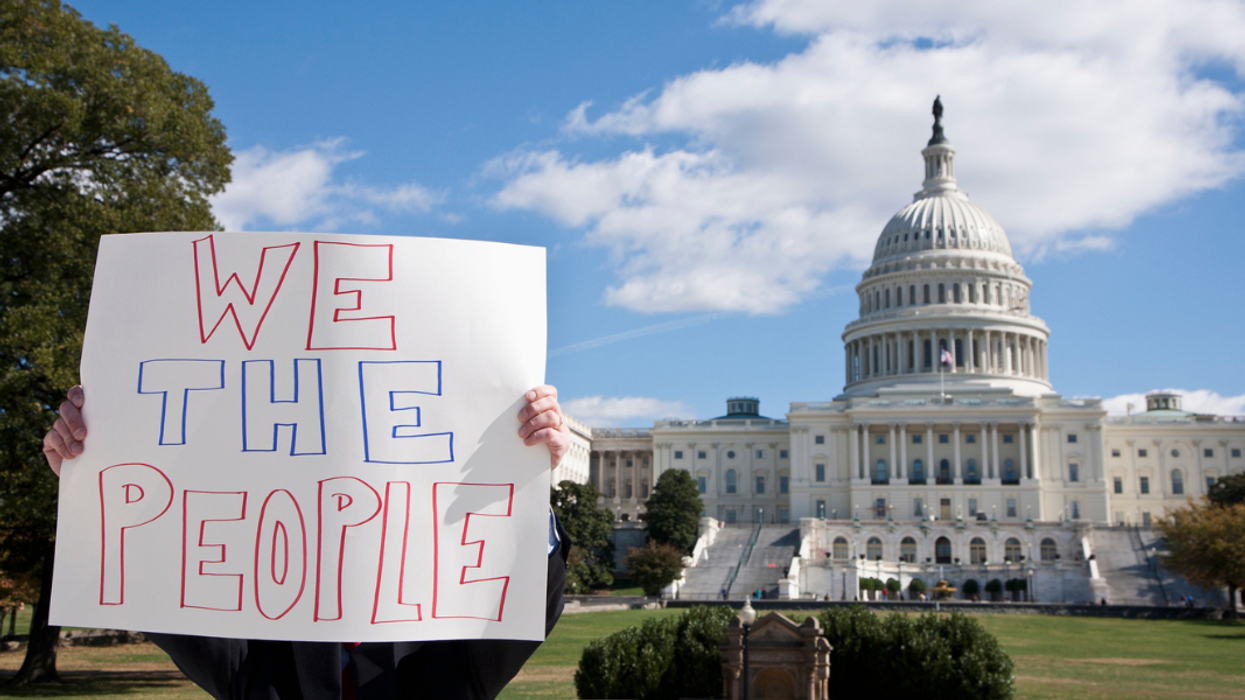Kelly is the Vice President of Civics Initiatives at the Jack Miller Center , a nationwide network of scholars and teachers committed to advancing the core texts and ideas of the American political tradition. He is a graduate of the University of Chicago and earned his JD at the University of Notre Dame.
“Our kids don’t know the Constitution.” It’s a complaint I hear a lot as I oversee teacher education programs for my organization the Jack Miller Center (JMC). But what if “knowing” the Constitution requires more than knowledge of what’s in it?
Recently, with partners at Sphere Initiative and Lou Frey Institute, we hosted more than 60 Florida social studies teachers and curriculum supervisors for a Civics Summit at the University of Central Florida. Sessions focused on the Florida Civic Literacy Exam which requires familiarity with foundational principles and texts and a deep understanding of the Constitution.
Together we studied Congress’ enumerated powers, the necessary and proper clause, and the amendment process—but it wasn’t any of these constitutional provisions that seemed to most resonate with teachers. Instead it was the ideas not explicitly stated but essential to our Constitution—akin to what Danielle Allen describes in her book Talking to Strangers as “customary habits of citizenship” and “unspoken norms of interaction” that underlie our Constitution. JMC partner professor Alberto Coll detailed some of these unspoken customs in one session: a belief in the corruptibility of human beings—men are not angels to paraphrase James Madison in Federalist 51; the importance of separation of powers, and particularly judicial independence; a belief in natural rights—rights that we have inherently as human beings that are “endowed by our Creator.”
And yet, despite its foundation in natural rights, Professor Coll reminded the audience that if we look at human history our system of government can hardly be described as natural. The regular course of affairs is that “might makes right,” that as Thucydides observed “the strong do what they can, and the weak suffer what they must.” The natural condition of man is tyranny.
The genius of our Constitution is not that it assumes the opposite—that man is by nature good—but rather that it resists man’s natural corruptibility through a complex arrangement of institutions. The counterbalancing of these institutions make freedom possible. Over the course of the day it became clear that the Constitution does not so much create freedom, as allow it to flourish.
In the eight years that I’ve been involved in middle and high school civics and history, when it comes to constitutional education, this broader view of our nation’s charter is what is most lacking—we’re missing the forest for the trees. JMC partner professor Greg Weiner alluded to this several years ago in a piece he wrote titled “ This Constitution Day, Teach the Whole Document.” His point was that too often constitutional education in K-12 and the undergraduate level focuses on the Bill of Rights, to the exclusion of the seven articles that make up the body of the Constitution. He’s not wrong about this. A recent RAND study showed that teaching rights and responsibilities ranks significantly higher among teacher civic education priorities than teaching the political institutions that make up the body of the Constitution.
But it’s not just that teachers need to address the whole document. Teachers need to help students consider the unwritten ideas, the ideas that the document assumes. After all, ours is the shortest constitution in the world—it assumes a lot.
During our civics summit for Florida teachers I closed out a panel discussion on the Constitution by asking whether the anti-federalist critique of the Constitution—that the expanded republic contemplated by the document would inevitably undermine civic virtue—was correct. We didn’t have time to dig into that question, but several teachers nodded along. It’s a critique that I’ve heard a number of times over the years—our Constitution doesn’t do enough to encourage civic responsibility.
It's perfectly natural to think of the Constitution as a complete, one-stop shop for civic and political life in America, including the expected behavior and conduct of citizens. Efficiency and good government would seem to require a central plan around which our lives can be organized. But ours is an unnatural Constitution. As Yuval Levin has explained, it aims not for efficiency but for unity amid diversity. It is not a totalizing framework, but one that makes space for most of political and social life to be determined outside its specific provisions. Civic responsibility must be derived from other sources.
With Jack Miller Center teacher programming, we try to help teachers look beyond the usual Supreme Court precedents. Before we jump into the Bill of Rights, before the articles, before even the preamble, our programs discuss the vision of government and society not spelled out in the document. This Constitution Day let’s celebrate what’s left out of our Constitution and the freedom it implies—let’s celebrate our unnatural Constitution.



















Trump & Hegseth gave Mark Kelly a huge 2028 gift